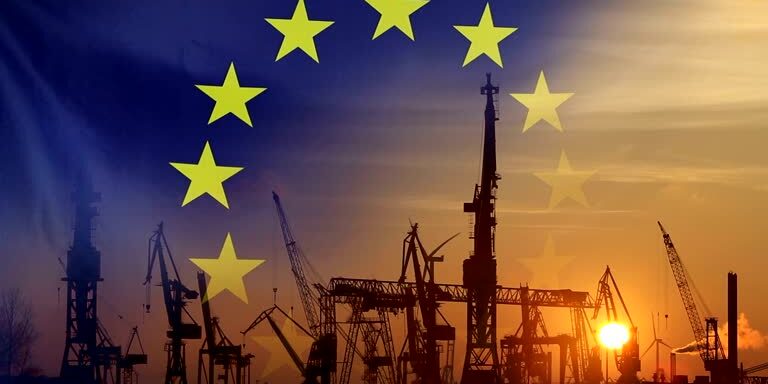The EU Clean Industrial Deal is reshaping Europe’s industrial landscape with a focus on sustainability and net-zero goals, and it has significant implications for supply chains. As Europe works towards becoming carbon-neutral by 2050, this deal ensures that energy, procurement, and supply chain practices are aligned with green growth, creating long-term benefits for industries and their suppliers.
A major initiative under the Clean Industrial Deal is the Affordable Energy Action Plan, designed to reduce energy costs for high-emission sectors such as steel, cement, and chemicals. By expanding renewable energy sources and implementing long-term power agreements, this plan lowers input costs for businesses, which, in turn, helps reduce expenses throughout the supply chain. With predictable pricing, supply chain leaders can better forecast costs and plan for the future with more stability.
The deal also encourages reshoring, bringing production back to Europe through incentives for domestic sourcing and “Buy European” policies. These efforts strengthen local supply chains, reduce reliance on imported materials, and lower emissions related to transportation. This shift helps ensure that sourcing is more sustainable, while also supporting European manufacturers in creating greener products and services.
A critical part of the Clean Industrial Deal is the creation of the European Industrial Decarbonisation Bank, which will fund the adoption of cutting-edge green technologies. This initiative will enable supply chains to integrate advanced solutions like carbon capture, hydrogen, and battery storage, improving energy efficiency and reducing environmental impacts across industries.
In addition to these measures, the Circular Economy Act encourages the use of recycled materials and local remanufacturing. This reduces dependency on imported raw materials and decreases emissions from transportation, fostering more sustainable and resilient supply chains within Europe. Companies are encouraged to rethink their sourcing strategies, focusing on using sustainable materials that are easier to source locally.
Sustainable procurement is another key component of the deal. New public procurement rules will prioritize clean technology and low-carbon goods, driving demand for more sustainable products and creating new opportunities for supply chain innovation. This shift will require companies to adapt their supplier relationships and ensure compliance with evolving regulations, further strengthening supply chain resilience.
The CID also addresses workforce needs by providing training programs in clean technologies and low-carbon manufacturing. This ensures that the supply chain workforce is well-equipped to handle the evolving demands of a green economy and can continue driving efficiency and sustainability.
Ultimately, the Clean Industrial Deal is a catalyst for transforming supply chains across Europe, aligning them with sustainability goals, fostering local production, and encouraging innovation. By integrating these green practices, Europe’s industries can remain competitive while contributing to a greener, more resilient future.
#ICTTMNews #BreakingNews #SustainableSupplyChain #GreenGrowth #NetZero #CircularEconomy #CleanTech







